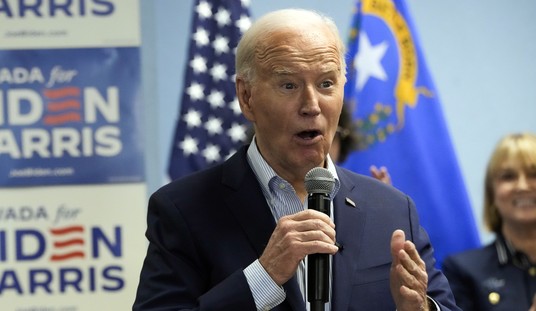There is an emerging narrative percolating throughout the political world; the prospect that Romney could win the popular vote but lose the Electoral College. The theory is predicated on the seemingly contradictory data between state and national polls. National polls seem to show Romney with a consistent 2-4% lead, while state polls show the candidates tied or Obama slightly ahead in Ohio, Iowa, and Wisconsin.
Some analysts are attempting to harmonize the state and national polls by theorizing that Romney’s national lead is driven by historic gains among whites in red states and a strong showing in Pennsylvania and Michigan. They suggest that ultimately the Electoral College boils down to Ohio (or Wisconsin, if Romney loses Ohio), a state where Obama’s much-vaunted ground game and oversaturation of ads could flip the state and the entire election to Obama.
This analysis is dead wrong. Either the state polls are correct, and this is a dog fight, or the national polls are correct, and this is a Romney win. The both cannot reflect reality.
It’s not just that the national polls show Romney ahead by 3%; it’s that 3 respected, yet diverse, national polls converged yesterday on the exact same number in one day – Romney 50% Obama 47% (today Gallup is Romney +5 and ABC/WaPost is Romney +1). So Romney is at 50% and the incumbent is at 47% (how ironic!) with undecided voters likely to break against him in an election defined by the stagnating economy. But it’s more than that. The Washington Post poll has Romney leading by 19-20 among Independents; Rasmussen shows him with a 17-point lead. Romney is now crushing Obama on the economy and even leading in favorability. It is almost impossible to lose the Electoral College under normal circumstances when leading by more than 1% nationally. It’s certainly impossible to lose when polling this well in all the internals.
In order for Romney to win by such margins in the popular vote, yet lose the Electoral College, he would have to outperform Bush in a number of non-swing-states, though he is unlikely to do so.
The math doesn’t add up.
Bush won the popular vote by 2.46% in 2004. In order to assume that Romney wins by roughly the same margin as Bush (or probably more, based on the internal numbers of the national polls), yet loses the Electoral College, one has to find a number of places where Romney outperforms Bush. But look around the map. Bush did really well in red states and probably won a number of them by more than Romney will. Bush won Montana by 21 points – something Romney will not do. The latest Rasmussen poll had him up just 8.
What about the blue states? People forget that Bush did pretty well in many Democrat states. He came within 7.6 in Delaware; 6.7 in NJ, 4 in Oregon, 3.5 in MN, and 9 in Maine. Heck, he only lost California by 10 points – a somewhat unlikely outcome for Romney.
What about the swing states? He won CO by 4.5; VA by 8; FL by 5; and NC by a whopping 13. He even won New Mexico – a state that Romney will not come close to winning (unless the Gallup national poll is correct).
What about Romney dramatically overperforming in Wis, MI, and PA, yet still losing? Well, that’s already baked into Bush’s 2.46% national margin. He lost Wis. by the slimmest of margins, PA by 2.5, and MI by 3.5.
Across the board, this is a much better showing in many states than Romney is expected to win, even in the best case scenario. Yet, he still only won the popular vote by 2.46% overall. So the idea that Romney could match this margin or even more nationally, yet lose the Electoral College, but make up the difference by overperfroming Bush in a number of areas, is crazy talk. Where would those votes come from?
Bottom line: if Romney wins the popular vote by 2-3%, he will clearly run the table on all the swing states, and possibly come very close in MI or PA, if not win them outright. Oh, and what’s all that talk of ads running in Minnesota?
So what about the state polls? If you look at most of the samples, they are more Democratic than the 2008 turnout model. It’s becoming clear that the early voting, which is disproportionately comprised of Democrats, is distorting the likely voter screens of most state polls. That’s why they are all showing a high D turnout, despite the ubiquitous enthusiasm gap.
Additionally, notice how Romney’s surge has stalled out in the state polls even as it continues in the national polls. He has even stalled in some Colorado and Virginia polls, states where Obama is clearly losing. The stagnation in all the state polls began right around the time when early voting picked up in earnest. If we are to believe the national polls, which are hard to disregard due to the convergence, the only plausible theory about the divergence of state polling is that they are inflating Democrat strength by 2-4% due to early voting.
If you reconstruct a turnout model that is only slightly more favorable for Republicans than 2008, Romney is ahead in most of the important states. Take this Gravis Marketing poll of Iowa, for example. They show Obama up 4 points, but the party ID is D +6 (D 41, R 35, I 24). In 2008, it was D +1 (D 34, R 33, I 33), and in 2004 it was R +2 (D 34, R 36, I 30). Here’s the kicker: the poll shows Romney leading by 12 among independents. Remember that of all swing states, Republicans improved their voter registration edge the most in Iowa. Additionally, there is a tremendous enthusiasm gap. Yet, if we merely reconstruct the 2008 turnout, which was evenly split among all three affiliations, a 12-point Indy win would clearly tip the state to Romney.
We’re seeing the same thing with the latest ARG poll in Ohio. They have Obama up 49-47, yet Romney is winning Independents by a gargantuan 21 points. The sample is D+9, even though it was D+5 in 2008.
It’s becoming clear that the national polls could easily work with the state polling data if we adjust for the likely turnout distortions from early voting. To a certain extent, we are seeing a reflection of the national polling in the Rasmussen state polls that factor in respondents who are certain to vote. However, whether this theory is correct or not, one thing is certain: Romney will not win Independents nationally by 15-19 points and lose the Electoral College.
Cross-posted from The Madison Project














Join the conversation as a VIP Member